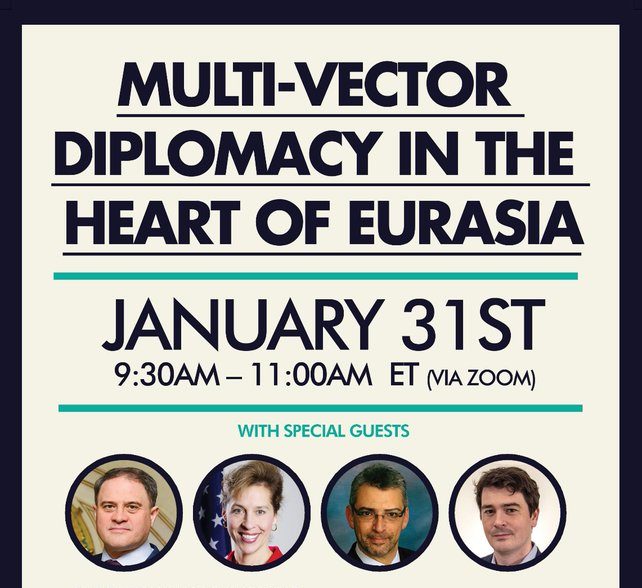Webinar: Multi-vector Diplomacy in the Heart of Eurasia
On January 31, Oxus Society, in collaboration with the Energy, Growth, and Security Program (EGS) at the International Tax and Investment Center (ITIC), held a webinar on multivectorism in Central Asia.
Foreign policy experts and practitioners worldwide have long debated whether a multipolar system would emerge, what its characteristics would be, under what conditions would it endure, and what its diplomatic best practices would be. Central Asia is uniquely suited as a case study for what contemporary and future multipolarity will look like beyond theory. Central Asia’s land-locked geography means it is hemmed in by geopolitically problematic neighbors (Iran, Afghanistan, China, and Russia) that are either much more powerful or are sources of instability. This delicate geopolitical position has endured since the collapse of the Soviet Union, meaning Central Asian states have the most practical experience with multi-vector diplomacy in the world.
Speakers:
Roman Vassilenko, Deputy Minister of Foreign Affairs, Ministry of Foreign Affairs of Kazakhstan
Laura Lochman, Deputy Assistant Secretary for Energy Diplomacy, Bureau of Energy Resources, U.S. Department of State
Ariel Cohen, Managing Director – Energy, Growth, and Security Program
Edward Lemon, President, The Oxus Society for Central Asian Affairs

